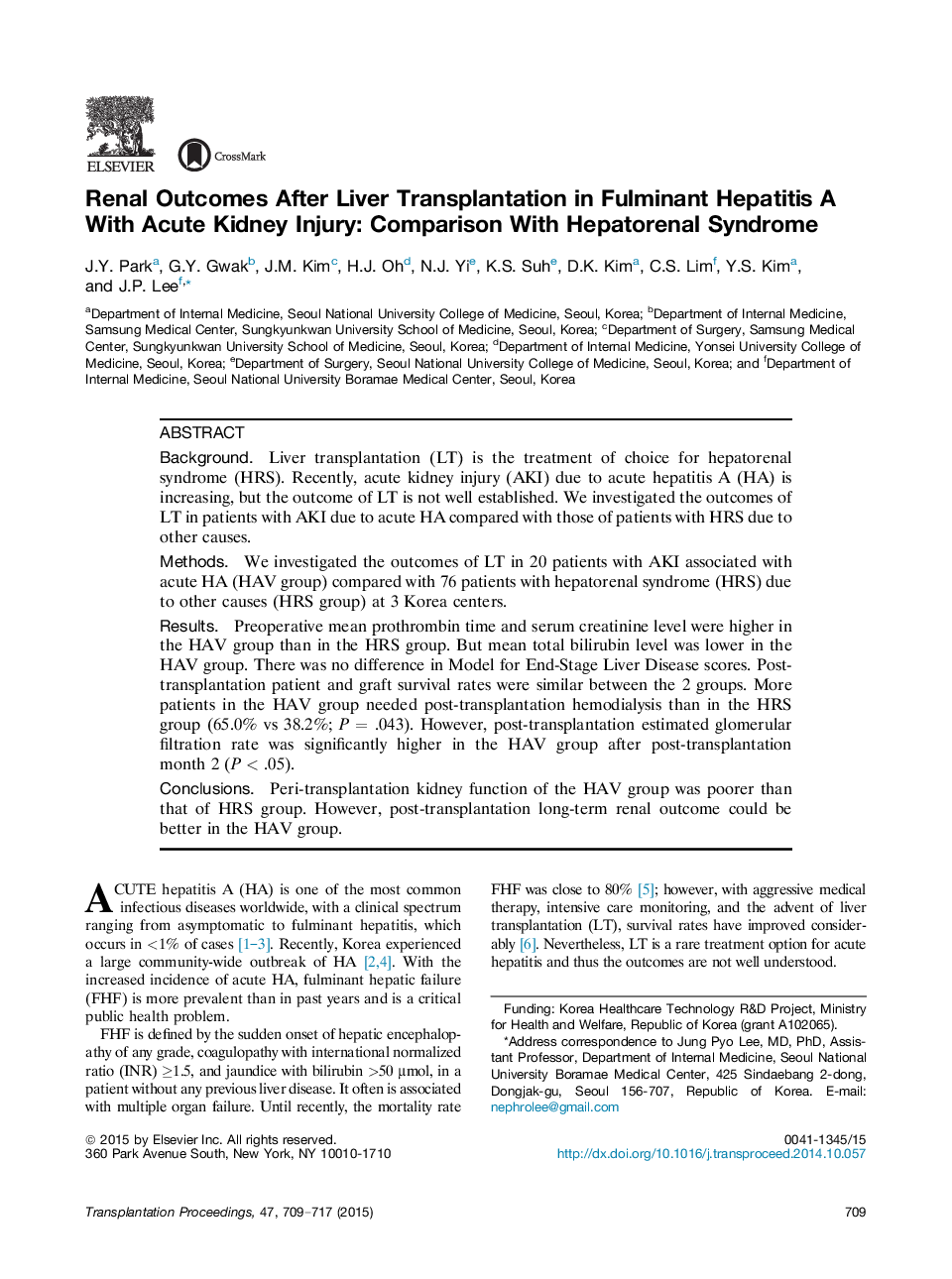| Article ID | Journal | Published Year | Pages | File Type |
|---|---|---|---|---|
| 6247852 | Transplantation Proceedings | 2015 | 9 Pages |
â¢We investigated the outcomes of liver transplantation in 2 different renal dysfunction groups.â¢Patients with acute kidney injury due to hepatitis A were compared with those with hepatorenal syndrome.â¢Peri-transplantation renal function of the hepatitis A group was poorer than that of the hepatorenal syndrome group.â¢Post-transplantation long-term renal outcome could be better in the hepatitis A group.
BackgroundLiver transplantation (LT) is the treatment of choice for hepatorenal syndrome (HRS). Recently, acute kidney injury (AKI) due to acute hepatitis A (HA) is increasing, but the outcome of LT is not well established. We investigated the outcomes of LT in patients with AKI due to acute HA compared with those of patients with HRS due to other causes.MethodsWe investigated the outcomes of LT in 20 patients with AKI associated with acute HA (HAV group) compared with 76 patients with hepatorenal syndrome (HRS) due to other causes (HRS group) at 3 Korea centers.ResultsPreoperative mean prothrombin time and serum creatinine level were higher in the HAV group than in the HRS group. But mean total bilirubin level was lower in the HAV group. There was no difference in Model for End-Stage Liver Disease scores. Post-transplantation patient and graft survival rates were similar between the 2 groups. More patients in the HAV group needed post-transplantation hemodialysis than in the HRS group (65.0% vs 38.2%; PÂ = .043). However, post-transplantation estimated glomerular filtration rate was significantly higher in the HAV group after post-transplantation month 2 (PÂ < .05).ConclusionsPeri-transplantation kidney function of the HAV group was poorer than that of HRS group. However, post-transplantation long-term renal outcome could be better in the HAV group.
